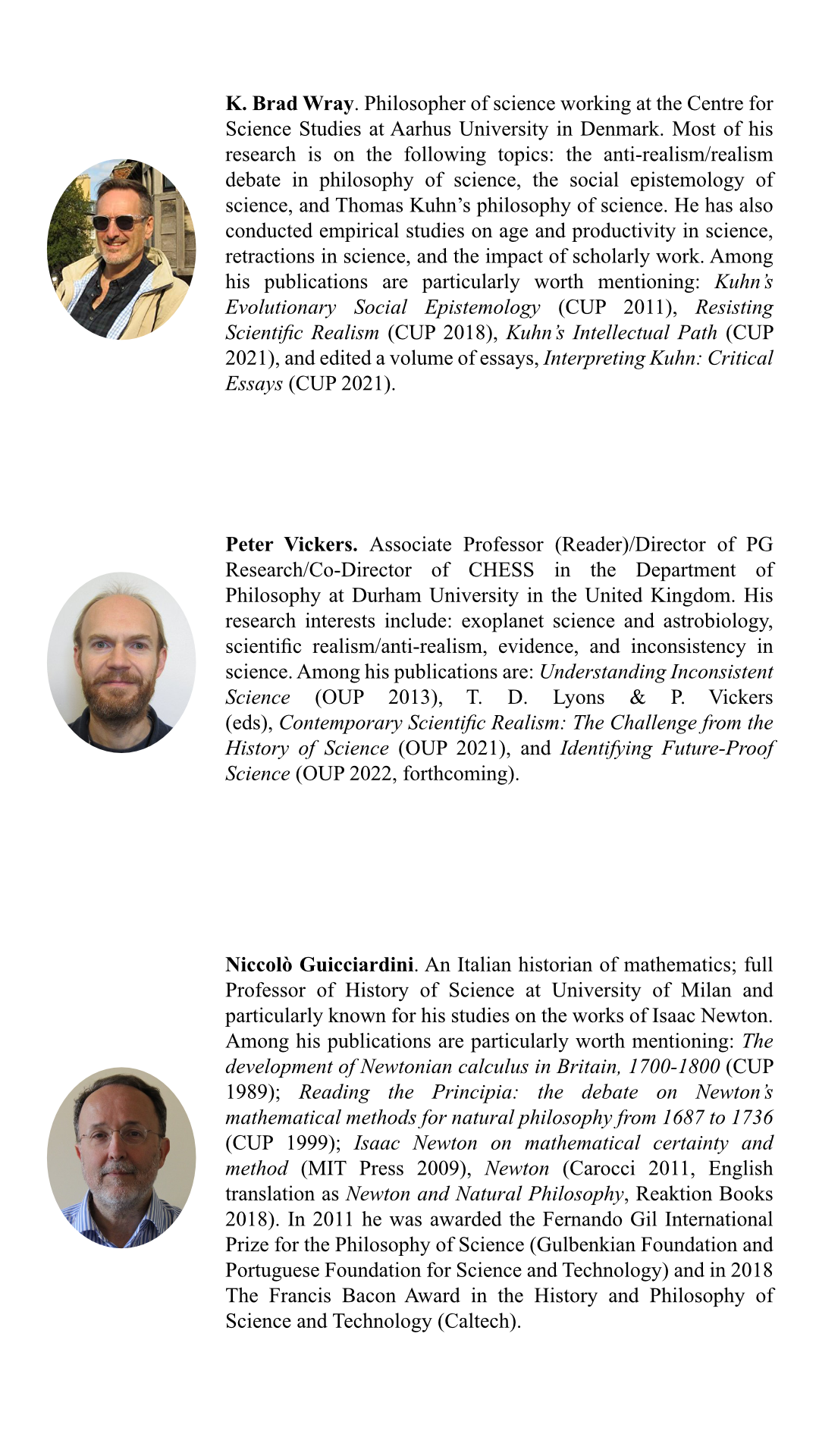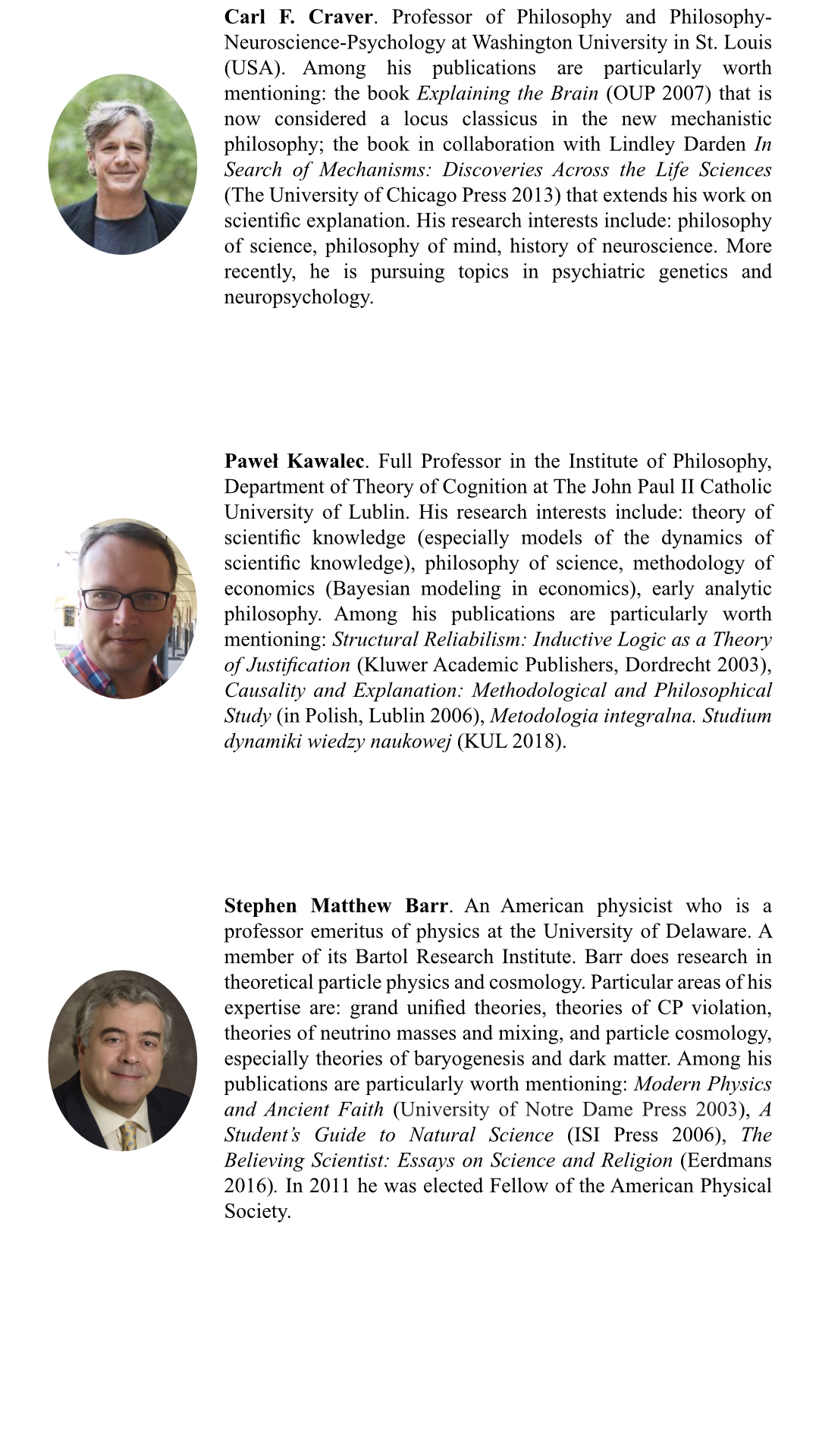Philosophical Perspectives on Sciences
International Conference
Hypothesis in science: a permanent feature or a temporary expedient to be tolerated?
The 550th anniversary of the birth of Nicolaus Copernicus
The idea of conference
It is sometimes assumed that the heliocentric (Copernican) and geocentric (Ptolemaic) systems were considered to be equally valid for a long period of time. On the contrary, there are descriptive, and (at least in part) predictive differences between the two models. These differences became even more substantial after the discovery of the telescope. The availability of considerably more new observations and data forced astronomers to abandon the Ptolemaic system, which was no longer able to justify certain physical observations. Rather than the geocentric, it was the geo-heliocentric model (proposed by Tycho Brahe) which became the real antagonist to heliocentrism, since the latter model was able to justify the motions of celestial objects based on observational evidence. However, for geometric description to also provide an explanation, astronomy needed to change its disciplinary goals. This happened when Newton proposed universal gravitation as an explanation for Kepler’s elliptical orbits. When Kepler’s description of these orbits was combined with Newton’s explanation, the geo-heliocentric model lost even more explanatory power, while the heliocentric model was reinforced.
If certain astronomical models and their equations can provide nothing more than an empirical description of the explanandum, then one may seek to provide the answer to the following question: could it be that in the geometrically-based astronomical models mentioned above there is something that helps us to distinguish merely descriptive from explanatory models? Since mathematical dependencies of scientific theories do not necessarily specify the causal dependencies that produce the explanandum, we probably do not know whether our hypotheses correctly describe the world. Thus, those hypotheses are nothing more than useful tools with which to organise observational data. However, just because a certain model or hypothesis is non-explanatory does not necessarily mean that it cannot play any descriptive or predictive role. What criteria do we have then to evaluate our scientific hypotheses, models or theories?
Our conference aims to address the role of hypothetical thinking in the formulation and development of scientific theories and models.
Organisers:
- Nicolaus Copernicus University
- Emerging Field Logic and Philosophy of Science
- Faculty of Philosophy and Social Sciences
- Faculty of Theology
- The University of Bologna
19-21 October 2022
Venue: Center of Dialogue in Torun, Poland
Important dates
- Deadline for proposal submissions: 30 April 2022
- Notification of proposal acceptance: 15 June 2022
Call for papers
Aims
Our conference aims to address the role of hypothetical thinking in the formulation and development of scientific theories and models. More specifically, studying the role of hypothesis in the sciences could prompt at least three different investigations:
- One might investigate the methods and the forms of reasoning implicit in the work of scientists with the objective of determining how they had relied on hypotheses in their work.
- One might discuss how systematic inquiry into the natural world should be carried out and what role creating hypotheses played for practitioners of science.
- One might evaluate the ability of hypotheses to imagine and foresee new phenomena by considering their use as a form of inquiry that seeks to go beyond the immediately observable to the causal structure responsible for observed phenomenon.
Next year will mark the 550th anniversary of the birth of Nicolaus Copernicus. We think that it would be highly pertinent to discuss how our understanding of the role of hypotheses has changed since his time. Is the use of hypotheses still viable in current science, or has it been superseded by other scientific concepts or methods? The aim of our conference is to contribute to the dialogue between scientists, historians of science, philosophers of science, and logicians interested in scientific methods of reasoning.
Scope
We will focus on the following main topics:
- What are the merits and limits of hypothetical reasoning in science from both a historical and a methodological point of view?
- Is there anything that secures a special epistemological role for hypotheses? If so, does it emerge from our rational capacities or is it rather contextually driven? What factors should be further elucidated in order to explicate the context and power of hypothetical reasoning?
- What guarantees the transition from hypothetical thinking to well-established theory? Is such a transition really necessary for the effective study of modern-day science?
Submissions
We invite you to address these topics from a historical, philosophical, and methodological point of view. Moreover, we welcome either a general approach to the above issues or a focus on case studies from more specific fields of scientific study.
We kindly invite you to submit short papers related to one of the three topics mentioned above. The proposals should be in English (including abstract, title, academic affiliation, email address), and should contain a max. of 400 words; please send the work to michaloleksowicz@umk.pl or submit your abstract via the conference page.
We prefer latex source + pdf submissions, but other formats (e.g. doc or pdf itself) are also accepted.
The format of the conference
The format of the conference, depending on the epidemic situation, may be an online/in-person hybrid.
Keynote speakers


- Radosnych i spokojnych Świąt Wielkanocnych - 18 kwietnia 2025
- XVIII Warsztaty Filozofii Przyrody. Gniezno, 12-15 czerwca 2025. Zaproszenie - 16 kwietnia 2025
- Realizm Pierre’a Duhema - 9 kwietnia 2025


